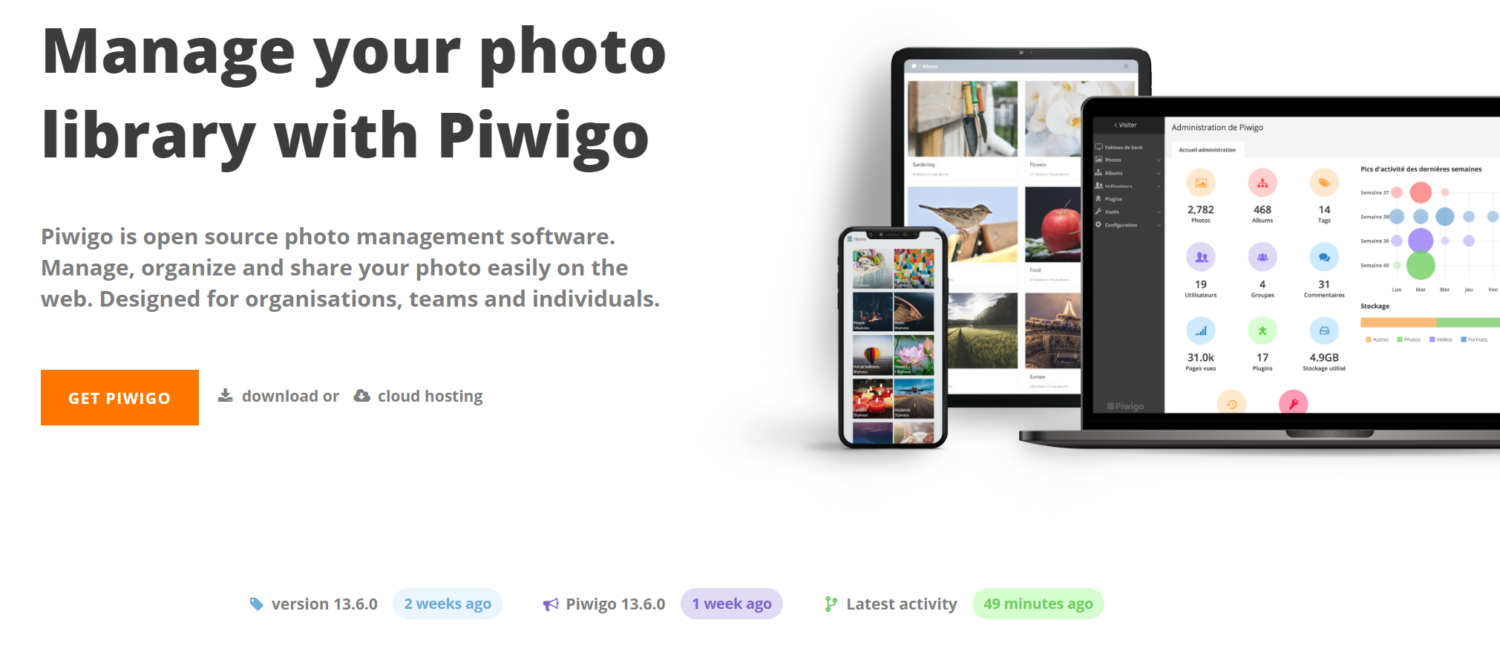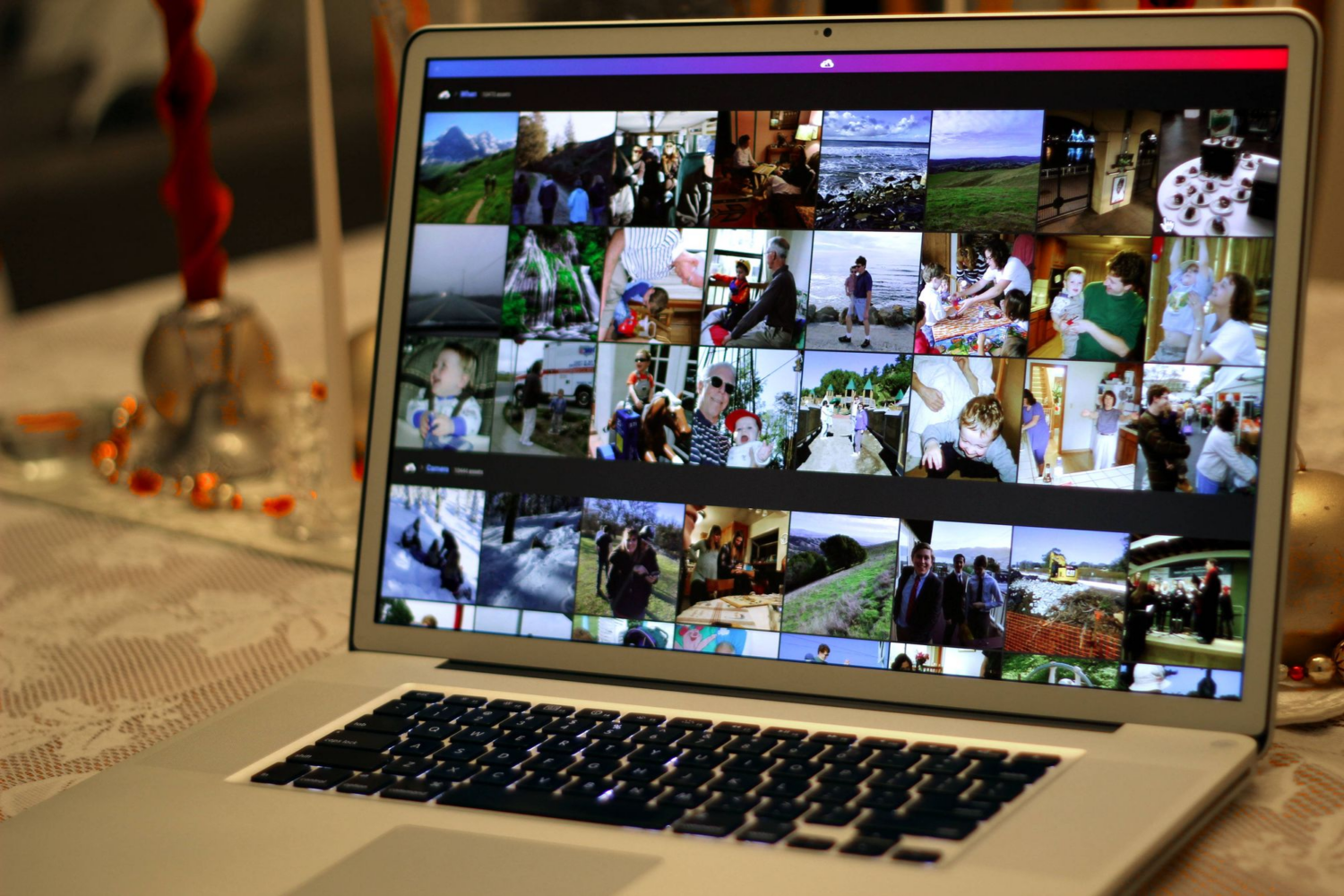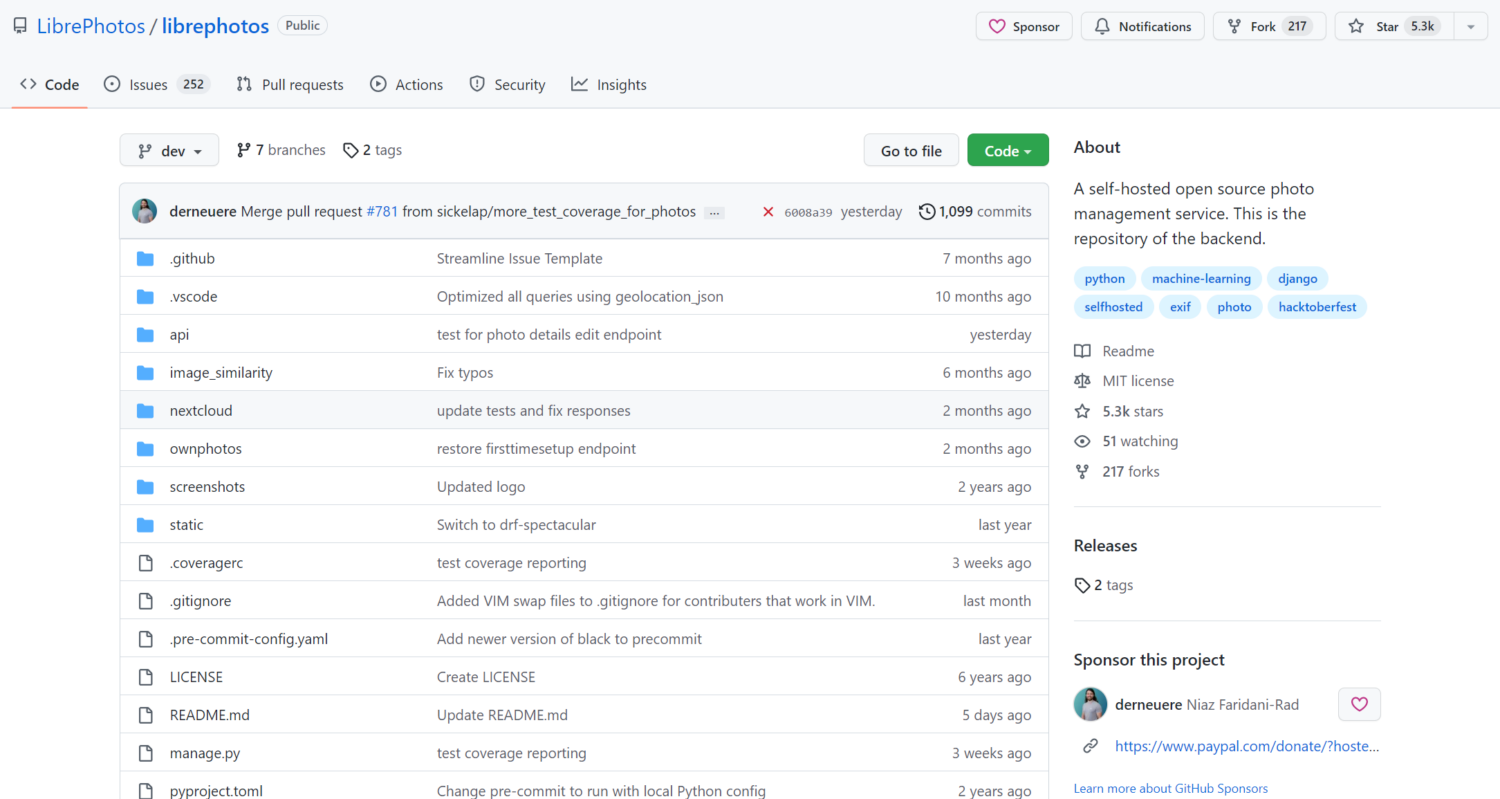Is your phone’s gallery overflowing with photos?
We love to capture our memories, but that has a consequence on our phone storage. Once your image gallery starts to get filled, you have two options.
- Upload to image hosting like Google Photos or iCloud Photos.
- Delete photos.
If you go for the 1st option, very soon, you will encounter that your plan doesn’t allow to upload images after the free storage threshold. For example, if you use Google Photos, you have 15 GB storage, but that is shared with your other Google services like Gmail, Drive, etc. There are other image hosting you can try, but none offer unlimited free storage.
What other option do you have to store photos?
Go for self-hosted where you have full control on cost and privacy. Self-hosted photo apps allow you to store your photos and videos on your server, and share them with your friends and family. It lets you store and share photos privately.
IMMICH
IMMICH is a new project being developed by Alex Tran, who is actively involved in its development. The app offers automatic backups for images and is heavily influenced by Google Photos in terms of functionality and user interface.

IMMICH is unusual when it comes to self-hosted applications based on maturity. Android and iOS apps are already available, even though the repository must still be production-ready.
Benefits
- You can use the CLI to bulk upload.
- There’s a little inverse geocoding.
- You can watch and upload videos.
- It’s easy to backup your favorite albums.
- There is user support for multiple users.
IMMICH is a great alternative to Google Photos for those who wish to back up their mobile photos and videos.
Piwigo
Piwigo is an open-source self-hosted application that helps you manage your photos and videos. It allows you to host your data, take control, or use cloud hosting.

Piwigo was founded in France and designed for individuals, teams, and organizations. If you have concerns about privacy with Google Photos or other services, Piwigo is a great alternative.
Piwigo photo management has several features and fine-grained controls.
Benefits
- You can host it yourself.
- The source code is open source.
- Designed to be mobile-friendly.
- You can browse by date.
- Automatically import your metadata.
Piwigo is a great solution for photography clients. There is also a mobile application.
PhotoPrism
PhotoPrism app lets you browse, organize, and share photos using the decentralized web. This app tags and finds your pictures automatically without interfering with your experience. You can use it on your PC, a private server, or the cloud.

They aim to make organizing and accessing your pictures as easy and privacy-friendly as possible. PhotoPrism is designed from the ground up to run wherever you need it without sacrificing freedom, privacy, or functionality. You can use PhotoPrism on Windows, Linux, and Mac, and it’s free in its community edition.
Benefits
- You can easily browse RAW files and photos.
- Its search filters let you find specific pictures.
- Identify your family and friends.
- Automatically classify images by content and location.
- Securely backup iOS and Android phones with PhotoSync.
PhotoPrism could be a great solution if you are interested in face recognition.
Lychee
Lychee is a web-based app that allows you to manage and share photos as you do with a native app. It comes with everything you need to secure your photos. You can upload, move, rename, describe, delete, or search your photos, and you can do it all in your browser.

You may also password-protect albums. It’s up to you. There’s an option to navigate through your images with your keyboard or make them public so others can view them. Lychee is free of charge.
Benefits
- It lets you drag and drop Dropbox files.
- Supports the Open Graph and Twitter Cards for sharing images.
- It makes your server run Imagick.
- Supports EXIF and IPTC metadata.
- Protect your pics with control.
Lychee is a simpler photo management app, perfect for hosting a basic online gallery.
PhotoStructure
The PhotoStructure self-hosted app makes organizing, browsing, and sharing large collections of photos and videos a breeze. It organizes and de-duplicates your photos automatically. You can use PhotoStructure on Windows 10, macOS, Ubuntu, or Docker.

A PhotoStructure is a subscription-based service that will never seek to profit from data sharing or advertising. Most of the new features will only be available to plus subscribers. Moreover, there is a single household limit for the PhotoStructure Plus subscription.
Benefits
- A self-hosted application that runs only on your computer.
- It’s super easy to install PhotoStructure.
- You’ll have a responsive, usable computer with PhotoStructure.
- You can import all your photos and videos.
- PhotoStructure’s search grammar makes finding what you’re looking for easy.
A PhotoStructure installation and operation are both simple.
Lomorage
Lomorage is a self-hosted application allowing users to manage and share photos. The app’s intuitive user interface makes uploading and organizing photos easy. There are also features like tagging, searching, and advanced editing.

Moreover, Lomorage allows you to share photos with your family and friends on popular social media platforms. Lomorage allows you to back up your photos and videos to your server and manage them on your behalf. You can enjoy it wherever you are, whether at home or on your phone.
Benefits
- It’s got a fast, reliable incremental backup.
- It supports live photos, slow motion, raw DNG files, and more.
- Keep the original file without affecting quality or metadata.
- You can sync your photos across devices.
- There’s an offline mode for browsing photos without the internet.
- You can search by location, date, or text in the photo.
Lomorage is still in beta, but most features will be released soon.
PicApport
The PicApport application allows you to organize and store photos and videos on a self-hosted server. This platform lets users store files securely in a private cloud to access them anywhere. The easy-to-use interface makes managing photos a breeze.

The application also allows you to make backups automatically, share content with friends and family, perform facial recognition, and use GPL-3.0 licenses.
A user management system provides a way to control what content and features users can view. The plugins and add-ons available in PicApport allow it to be tailored to various scenarios.
Benefits
- Picapport is intuitive and user-friendly, so even beginners can use it.
- The PhotoPortal provides fast and reliable access to your photos, videos, and more.
- It automatically backs up your media to the cloud, so you’re safe.
- It lets you share photos and videos with your friends.
- PicApport works with Windows, Mac OS X, iOS, and Android to access your media anywhere.
PicApport is a great self-hosted app for both businesses and families.
PiGallery 2
PiGallery 2 is an excellent self-hosted app for Android devices. It is designed to work on Raspberry Pi, but you don’t have to own one to install it. Instead, use Docker to install it, use Docker-compose, or create packages using Node.java.

This app is well known for its speed and simplicity. If you point it to your image directory, you can access your pictures from any browser and device. The app automatically creates a gallery, and subdirectories contain albums.
You can search for photos using Boolean logic and keywords. It is suitable for collections of up to 100,000 images when each gallery has a maximum of 5,000 images.
It’s a great option for anyone seeking a reliable and user-friendly app.
Benefits
- A user interface that’s intuitive and easy to use.
- Access password-protected photos and videos.
- You can share photos and videos with your family and friends.
- Auto-sync photos and videos to the cloud.
- Organize your photos and videos into albums and categories.
PiGallery 2 has tons of features and can be customized to your liking.
LibrePhotos
LibrePhotos is an open-source photo management application with face recognition and multi-user support. The application is a self-hosted clone of Google Photos that emphasizes cool graphs and is based on OwnPhotos.

Unlike commercial services, your photos are stored in the cloud and scanned/indexed for machine learning and ad targeting. Your data never goes to a third-party server. Your personal information remains private, allowing you to enjoy the same privacy and power as commercial services.
Benefits
- It works with all kinds of photos, even raw ones.
- Video support is available.
- There’s a Timeline view.
- You can scan pictures to the file system.
- It’s multi-user friendly.
You can use your photos with LibrePhotos without worrying about hackers and data leeching. It still needs to simplify the setup process, so everyone can use it.
What’s next?
Once you sort out photo apps, you need to get a server where you can host the above apps. One option is to try Kamatera cloud VM, which starts at $4 per month. And, to enhance your photos, you can check out these AI-powered photo editors.

